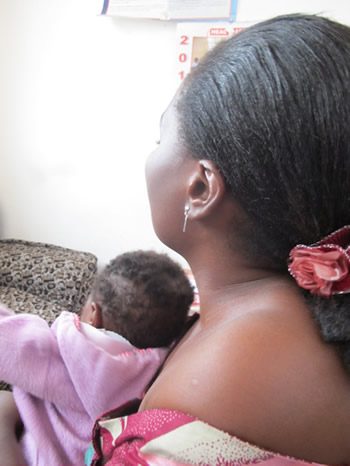
|
|
|
| Home » |
HIV Treatment ProgramsHIV and AIDS have dramatically altered life for many in Congo. Too often the religious community has chosen not to become involved. Goma is an exception. The Choose Life program, known locally by its French name, Choisir la Vie, has been working since 2000 to educate communities about HIV/AIDS by mobilizing all the faith communities--Muslim, mainline Protestant, Pentecostal, Catholic, and Kimbanguist--to respond with compassion to the challenge of HIV/AIDS. All of the activist trainers are volunteers chosen by their community. They educate, encourage prevention, and accompany those affected by HIV. HEAL Africa also has the largest medical HIV treatment intervention for children in North Kivu province Children’s AIDS Program
HEAL Africa introduced a peanut based nutritional supplement provided for the children taking ARVs. This is crucial as 20% of the children who need ARVs are too malnourished to take the medicine. The product is produced in Goma to make the practice more sustainable and provide local jobs. Prevention of Mother to Child Transmission (PMTCT) HEAL Africa pioneered the first PMTCT program in Goma in 2003, thanks to Global Strategies for HIV Prevention, one of our partners. Six centers in Goma and four other rural health centers are implementing the program in their high volume maternity services. Post Exposure Prophylaxis (PEP) HEAL Africa is the only health service to offer PEP to survivors of rape in order to prevent the transmission of HIV. HEAL Africa serves as a treatment center and distributes the prophylaxis to rural health centers and trains health professionals how to administer it. Community programs like Heal My People (LINK) inform women of the need to come forward within 72 hours in order to get treatment. What a difference it can make in a life! Home Palliative Care The bitter reality is that people die every day in northeastern DRC due to AIDS. HEAL Africa works with 5 small local organizations in Goma, Masisi and Rutshuru territories to care for those dying of AIDS to lessen their pain in the last days. In 2009, over 3,000 people with AIDS are being cared for by a network of volunteers backed up by nurses and doctors. They provide pain relief and weekly home visits, and support through conversation and prayer. Education By mobilizing all local faith groups--Christian, Muslim, and Kimbangist--HEAL Africa’s Choose Life has held education seminars that provide accurate information about transmission of HIV and encourage fidelity and condom use in almost every church in Goma, a city of ½ million people, and throughout the whole province. HEAL Africa has broken down barriers within the faith communities and challenged them to respond compassionately to the problem of HIV/AIDS. It has done so by educating about the actual causes of the disease transmission and encouraging religious leaders to fight the stigma that engulfs people infected with HIV. HEAL Africa helps communities organize youth clubs through its program, Choose Life. The clubs educate school age children and young adults about how HIV/AIDS is contracted and what preventative measures can be taken against it. It provides alternative positive activities in villages where there is little for youth to do. Choose Life has created multi media guides including DVDs, books, and brochures that have been distributed throughout DR Congo. Micro-Grants Financial training and small business grants have been given to over 1000 families of foster HIV orphans or child-headed households affected by HIV/AIDS.They are grouped into small support groups that meet weekly, providing moral support and encouragement. The grants support businesses that provide food and offer a savings component aimed at keeping the children in school. |
|
Our Mission Providing holistic care including physical, spiritual and social healing for the people of the Democratic Republic of Congo; training for health professionals; support to strengthen communities; encouragement for women in community leadership roles; and support for education and vocational training. Copyright © 2011 HEAL Africa is a registered 501(c)(3) charity | EIN#20-4104936 All Rights Reserved. |

 HEAL Africa monitors over 600 HIV positive children from Goma and surrounding areas in the CAP clinic at the HEAL Africa hospital in Goma. 300 children are administered Anti-Retrovirals (ARVs) through a grant from the Clinton Foundation through Global Strategies for HIV Prevention. The Democratic Republic of Congo (DRC) is not a PEPFAR country, and treatment is prohibitively expensive for most families, even if treatment were available.
HEAL Africa monitors over 600 HIV positive children from Goma and surrounding areas in the CAP clinic at the HEAL Africa hospital in Goma. 300 children are administered Anti-Retrovirals (ARVs) through a grant from the Clinton Foundation through Global Strategies for HIV Prevention. The Democratic Republic of Congo (DRC) is not a PEPFAR country, and treatment is prohibitively expensive for most families, even if treatment were available.